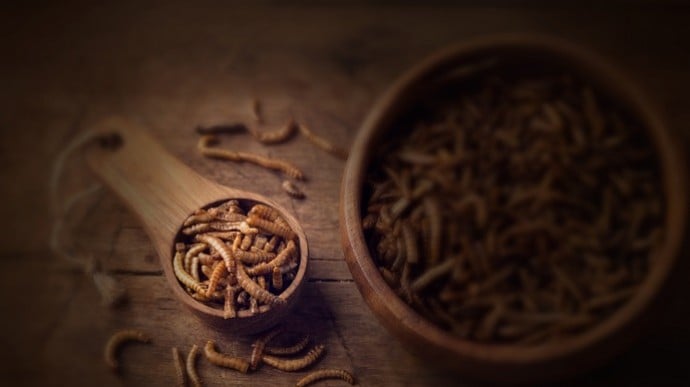Mortality in critically ill patients with COVID-19 is higher in African countries than reported from studies done in Asia, Europe, North America and South America. This is according to the findings of a study that was conducted by a team of African researchers, including experts from the University of Pretoria (UP), and recently published in peer-reviewed journal The Lancet.
Increased mortality was associated with insufficient critical-care resources, as well as comorbidities such as HIV/AIDS, diabetes, chronic liver disease and kidney disease, and the severity of organ dysfunction upon admission.
“Our study is the first to give a comprehensive picture of what is happening to people who are severely ill with COVID-19 in Africa, with data from multiple countries and hospitals,” says Professor Bruce Biccard of Groote Schuur Hospital in Cape Town and the University of Cape Town, who co-led the research. “Sadly, it indicates that our ability to provide sufficient care is compromised by a shortage of critical-care beds and limited resources within intensive-care units [ICU].”
Prof Biccard added that poor access to potential life-saving interventions such as dialysis, proning (turning patients onto their stomachs to improve breathing) and blood oxygen monitoring could be factors in the deaths of these patients, and could also partly explain why one in eight patients had therapy withdrawn or limited. “We hope these findings can help prioritise resources and guide the management of severely ill patients – and ultimately save lives – in resource-limited settings around the world.”
Until now, little had been known about how COVID-19 was affecting critically ill patients in Africa, as there have been no reported clinical outcomes data from Africa or any patient management data in low-resource settings. To address this evidence gap, the African COVID-19 Critical Care Outcomes Study (ACCCOS) aimed to identify which human and hospital resources, underlying conditions and critical-care interventions might be associated with mortality or survival in adults (aged 18 or older) admitted to intensive-care or high-care units in Africa.
The study focused on 64 hospitals in 10 countries (Egypt, Ethiopia, Ghana, Kenya, Libya, Malawi, Mozambique, Niger, Nigeria and South Africa). Between May and December 2020, about half (3 752 of 6 779) of patients with suspected or confirmed COVID-19 infection referred to critical care were admitted. Of those, 3 140 patients participated in the study. All received standard care and were followed up for at least 30 days unless they died or were discharged. Modelling was used to identify risk factors associated with death.
After 30 days, almost half (48% – 1 483/3 077) of the critically ill patients had died. The analysis estimates that death rates in these patients were 11% (in best-case scenarios) to 23% (in worst-case scenarios) higher than the global average of 31.5%.
“This collaborative landmark effort provides valuable information regarding the African COVID-19 experience among our critically ill patients,” says Prof Fathima Paruk, Clinical and Academic Head of the Critical Care Unit at UP and the UP study site lead. “Unique findings – such as the high death rate, being male not being associated with a higher risk of death, ICU bed shortages, underuse of resources or a paucity of certain ICU resources – highlight the importance and need for our own data.”
Clinical services and critical care to patients revealed some important information. Prof Paruk and her team at UP’s Faculty of Health Sciences and Steve Biko Academic Hospital in Pretoria played a leading role in this important study. The impact of their findings will not only be seen on clinical training platforms, but will have an impact on patient care in Africa, says Prof Tiaan de Jager, Dean of UP’s Faculty of Health Sciences.
“Moving forward,” Prof Paruk adds, “the findings provide much-needed evidence in terms of guiding clinical management and in terms of the pressing need to ensure the appropriate provision, allocation and use of resources, so that we can save more lives in resource-limited settings. Furthermore, the high death rate among severely ill COVID-19 patients in Africa further strengthens the case for prevention through vaccination.”
“Africans are clearly at higher risk of more severe disease and death when COVID-19 positive,” adds Prof Robin Green, Chairman of the School of Medicine at UP. “This suggests that our population is desperately in need of better ICU resources and medications, but especially prevention through vaccination. The current vaccine roll-out in Africa is hopelessly ineffective. We would appeal to all humanitarian and health agencies to make vaccines for Africa a priority.”
“The Faculty of Health Sciences at UP, in particular our staff, has been at the forefront of the COVID-19 response,” says Prof De Jager. “The faculty has been preparing for this through the creation of research-driven teaching and learning platforms, informed by the demands of the fourth industrial revolution.”
Prof Fathima Paruk
May 27, 2021
 Story
Story
Cricket à la king? How about a yellow mealworm burger? Foods that may previously have evoked a ‘yuck’ response are now firmly on the menu. Research into edible insects by the Department of Zoology and Entomology at the University of Pretoria (UP) is exploring how to rear and harvest this food of the future.
 Story
Story
University of Pretoria (UP) researchers have found that the antioxidant content of certain types of tea can be likened to that found in recommended portions of fruit and vegetables.
 Infographic
Infographic
Half a cup of black tea, oolong tea or green tea contained the same amount of antioxidants with radical scavenging capabilities (RSC) as that of a 200mg vitamin C tablet.
Copyright © University of Pretoria 2025. All rights reserved.
Get Social With Us
Download the UP Mobile App